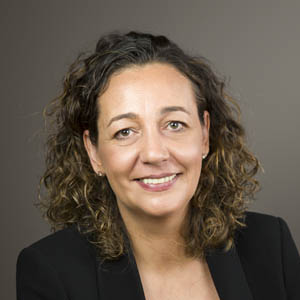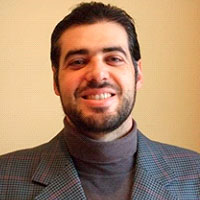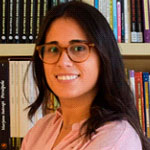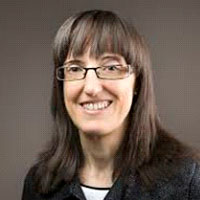Master’s Degree in Early Childhood Intervention

Program endorsed by experience training Nebrija University professors for more than 20 years
The increase in premature births and the need to reduce its harmful effects on babies before the age of six constitute factors that reaffirm the need for specific, advanced and professional care that must be mediated by all the quality guarantees offered by official education.
In this context, the Master's Degree in Early Childhood Intervention appears with the aim of offering specialized training that enables students to design and develop Early Intervention programs in the educational context, from a perspective that includes working with the family and the community and coordinated participation in a multidisciplinary Early Intervention team.
The distance learning modality in which this master's degree will be taught is fully adapted to any student profile. The time flexibility and the possibility of studying from anywhere mean that this program can reach more professionals.
Collaborative learning is guaranteed, and the pace of study is personalized. Pedagogical innovation sets us apart and our commitment to inclusive, equitable and quality education promotes new learning opportunities.
As the culmination of the year in which the V Centenary of the death of Antonio de Nebrija is commemorated, an exhibition was organized at the National Library of Spain that shows the intellectual profile of the first Spanish humanist, without forgetting him as a man, researcher and professor through his enormous work.
Student profile:Graduado universitario o equivalente (licenciados o diplomados), en Magisterio, Pedagogía, Psicología (con mención o especialidad en educación) o Psicopedagogía. Asimismo, dado el carácter transversal del programa, podrán acceder al Máster aquellos estudiantes que hayan finalizado el Máster en Formación del Profesorado de ESO y Bachillerato, FP y Enseñanza de Idiomas o estén en posesión del Certificado de Aptitud Pedagógica (CAP), así como otros Graduados y Licenciados Universitarios que sean profesionales de la Docencia o ejerzan como Profesores en Instituciones Educativas, Escuelas de Negocios o Universidades (incluido los profesores doctores del sector universitario)University graduate or equivalent (bachelor's or associate's degrees) in Teaching, Pedagogy, Psychology (with a specialization or specialty in education) or Psychopedagogy. Likewise, given the transversal nature of the program, students who have completed the Master's Degree in Teacher Training for Compulsory Secondary Education and Baccalaureate, Vocational Training and Language Teaching, or who have a Teaching Aptitude Certificate (CAP), as well as others, will be able to access this master's degree. University graduates who are teaching professionals or work as Professors in Educational Institutions, Business Schools or Universities (including PhD professors in the university sector).
Graduate profile:The profile of the graduate in this Master's Degree in Early Childhood Intervention is that of a professional specifically trained for early assessment and intervention in the educational context, including the family environment in the work process. They will be professionals with the ability to integrate into an interdisciplinary team for early intervention, and competent in designing and organizing early intervention programs in the educational environment.
The graduate of this Master's Degree in Early Childhood Intervention may also provide the technical assessments that are required by other professionals or institutions in the exercise of their competency.
Official Degree:Master’s Degree in Early Childhood Intervention
Learning Center:School of Language and Education
Branch of knowledge: Languages and Education
Places offered: 300
Total Credits 60 credits.
Minimum 12 ECTS credits and maximum 60 ECTS credits per enrollment and academic year
Academic year it was introduced: 2023/2024
Duration: 1 year.
Teaching Type:: Classroom attendance - Online
Academic Regulations: General student’s regulations. Credit transfer and recognition. Regulation of student participation. Common procedures for carrying out the Final Research Project
University Services: [+info]
Internal Quality Assurance System System managers Incidents, Suggestions and Complaints Job placement report and assessment of training received
Collaborate with the CEDI Group in cognitive research projects
Curriculum
The student must take 60 credits
First Semester 30 ECTS
From October to January, both included- 6 ECTS | Early intervention systems and models
- 6 ECTS | Early intervention systems and models
- 6 ECTS | Evaluation and diagnostic tests in early intervention
- 6 ECTS | Disorders and needs in early intervention
- 6 ECTS | Methodology and intervention in early childhood
Second Semester 30 ECTS
Profesores
 Nuria Camuñas Sánchez-Paulete
Vicedecana de la Facultad de Lenguas y Educación y Directora del Departamento de Educación
Vice Dean of the Faculty of Languages and Education and Director of the Department of Education
Doctora en Psicología por la UCM. Máster en Intervención en la Ansiedad y el Estrés (UCM). Licenciada con grado en Psicología (UCM). Vicedecana y directora del Departamento de Educación, Facultad de Lenguas y Educación. Profesora de grado y postgrado en esa misma facultad. Docente de distintos cursos de formación y máster, sobre ansiedad, emociones y educación, estrés, modificación de conducta y dificultades del aprendizaje. Autora de distintas publicaciones y presentaciones en congresos relacionadas con procesos cognitivos, emoción y educación, prevención y control del estrés, etc. Miembro del grupo de investigación CEDI (Cognición, Educación y Diferencias Individuales). Otras líneas de investigación: Cognición, Emoción, Salud y Educación.
ncamunas@nebrija.es
Nuria Camuñas Sánchez-Paulete
Vicedecana de la Facultad de Lenguas y Educación y Directora del Departamento de Educación
Vice Dean of the Faculty of Languages and Education and Director of the Department of Education
Doctora en Psicología por la UCM. Máster en Intervención en la Ansiedad y el Estrés (UCM). Licenciada con grado en Psicología (UCM). Vicedecana y directora del Departamento de Educación, Facultad de Lenguas y Educación. Profesora de grado y postgrado en esa misma facultad. Docente de distintos cursos de formación y máster, sobre ansiedad, emociones y educación, estrés, modificación de conducta y dificultades del aprendizaje. Autora de distintas publicaciones y presentaciones en congresos relacionadas con procesos cognitivos, emoción y educación, prevención y control del estrés, etc. Miembro del grupo de investigación CEDI (Cognición, Educación y Diferencias Individuales). Otras líneas de investigación: Cognición, Emoción, Salud y Educación.
ncamunas@nebrija.es
 Paula C. Contesse Carvacho
Directora del Máster en Atención Temprana
Director of the Master’s Degree in Early Childhood Intervention
Doctora en Ciencias de la Educación por la Universidad Autónoma de Barcelona. Máster en Investigación en Educación (UAB) y Máster en Psicopedagogía en la Universidad del Desarrollo de Chile. Formación de grado de Profesora de Educación Primaria y Diferencial con especialidad en Discapacidad Intelectual. Autora de publicaciones y presentaciones en congresos relacionados con la discapacidad intelectual en diversos temas: calidad de vida, atención a la diversidad, inclusión especial y universitaria. Se ha desempeñado como profesora tanto en centros de educación especial en niveles de atención temprana como en colegios regulares, en educación primaria y en proyectos de inclusión educativa. Ha desempeñado funciones en educación universitaria como profesora en formación inicial de carreras de Psicopedagogía, Educación Especial, Educación Infantil y Primaria.
pcontess@nebrija.es
Paula C. Contesse Carvacho
Directora del Máster en Atención Temprana
Director of the Master’s Degree in Early Childhood Intervention
Doctora en Ciencias de la Educación por la Universidad Autónoma de Barcelona. Máster en Investigación en Educación (UAB) y Máster en Psicopedagogía en la Universidad del Desarrollo de Chile. Formación de grado de Profesora de Educación Primaria y Diferencial con especialidad en Discapacidad Intelectual. Autora de publicaciones y presentaciones en congresos relacionados con la discapacidad intelectual en diversos temas: calidad de vida, atención a la diversidad, inclusión especial y universitaria. Se ha desempeñado como profesora tanto en centros de educación especial en niveles de atención temprana como en colegios regulares, en educación primaria y en proyectos de inclusión educativa. Ha desempeñado funciones en educación universitaria como profesora en formación inicial de carreras de Psicopedagogía, Educación Especial, Educación Infantil y Primaria.
pcontess@nebrija.es
 Helena Domínguez Santos
Coordinadora Académica del Máster en Atención Temprana
Academic Coordinator of the Master’s Degree in Early Childhood Intervention
Graduada en Pedagogía por la Universidad de Granada. Coordinadora académica de titulaciones oficiales y tutora de prácticas. Formación complementaria en calidad educativa, e-elarning, dificultades de aprendizaje, gestión de personas. Experiencia como docente de acciones formativas en modalidad online relacionadas con el ámbito de la educación. Técnico de formación. Coordinadora de proyectos académicos en instituciones de formación online. Dinamizadora de formación. Coordinación de claustro docente. Atención al alumnado.
hdomingu@nebrija.es
Helena Domínguez Santos
Coordinadora Académica del Máster en Atención Temprana
Academic Coordinator of the Master’s Degree in Early Childhood Intervention
Graduada en Pedagogía por la Universidad de Granada. Coordinadora académica de titulaciones oficiales y tutora de prácticas. Formación complementaria en calidad educativa, e-elarning, dificultades de aprendizaje, gestión de personas. Experiencia como docente de acciones formativas en modalidad online relacionadas con el ámbito de la educación. Técnico de formación. Coordinadora de proyectos académicos en instituciones de formación online. Dinamizadora de formación. Coordinación de claustro docente. Atención al alumnado.
hdomingu@nebrija.es
 Julia Pardo López
Profesora y Directora TFM
Professor and Director TFM
Diplomada en Magisterio de Educación Primaria y Licenciada en Psicopedagogía, ambas por la Universidad de Granada (UGR). Actualmente cursando el Doctorado en Educación por la UGR. La tesis doctoral se desarrolla sobre la Competencia Lectora, una investigación sobre la realidad educativa con diferentes líneas de investigación y propuestas de renovación metodológica. Máster en Psicodiagnóstico y Tratamiento de la Atención Temprana por la Universidad Camilo José Cela (Madrid). Profesora del Máster de Atención Temprana de la Universidad de Nebrija. Y, al mismo tiempo, profesora del Máster de Calidad e Innovación Docente de la misma universidad. Profesora de Educación Primaria y Secundaria en un colegio internacional bilingüe, y psicopedagoga en el Departamento de Orientación. Profesora del Máster de Profesorado y tutora de Practicum en la Universidad Internacional Isabel I, durante los últimos dos años. Otras líneas de investigación actuales: Educación Inclusiva; Educación Bilingüe; Neuroeducación.
jpardo@nebrija.es
Julia Pardo López
Profesora y Directora TFM
Professor and Director TFM
Diplomada en Magisterio de Educación Primaria y Licenciada en Psicopedagogía, ambas por la Universidad de Granada (UGR). Actualmente cursando el Doctorado en Educación por la UGR. La tesis doctoral se desarrolla sobre la Competencia Lectora, una investigación sobre la realidad educativa con diferentes líneas de investigación y propuestas de renovación metodológica. Máster en Psicodiagnóstico y Tratamiento de la Atención Temprana por la Universidad Camilo José Cela (Madrid). Profesora del Máster de Atención Temprana de la Universidad de Nebrija. Y, al mismo tiempo, profesora del Máster de Calidad e Innovación Docente de la misma universidad. Profesora de Educación Primaria y Secundaria en un colegio internacional bilingüe, y psicopedagoga en el Departamento de Orientación. Profesora del Máster de Profesorado y tutora de Practicum en la Universidad Internacional Isabel I, durante los últimos dos años. Otras líneas de investigación actuales: Educación Inclusiva; Educación Bilingüe; Neuroeducación.
jpardo@nebrija.es
 Patricia Ortiz Ruiz
Profesora y Directora TFM
Professor and Director TFM
Graduada en Pedagogía y Máster en Profesorado Educación Secundaria Obligatoria y Formación Profesional. Especialidad Formación y Orientación Laboral. Itinerario Orientación Educativa; ambos por la Universidad de Granada. Formación complementaria en Atención a la diversidad y neuroeducación. Trabajó en el Taller Ocupacional de Atarfe (Granada) donde sus tareas se centraban en la enseñanza de aspectos básicos de lecto-escritura, matemáticas o lenguaje a personas con diversidad funcional. También desarrollaba tareas encaminadas a la adquisición de la autonomía e independencia de las personas usuarias. Participó en el Proyecto Cantera (Diputación de Granada) donde se encargó del desarrollo de sesiones educativas a través de dinámicas para el fomento de la participación social, el conocimiento de las emociones propias y las de los demás, además del desarrollo de estrategias para hacer frente a ellas, en un instituto de la ciudad.
portizru@nebrija.es
Patricia Ortiz Ruiz
Profesora y Directora TFM
Professor and Director TFM
Graduada en Pedagogía y Máster en Profesorado Educación Secundaria Obligatoria y Formación Profesional. Especialidad Formación y Orientación Laboral. Itinerario Orientación Educativa; ambos por la Universidad de Granada. Formación complementaria en Atención a la diversidad y neuroeducación. Trabajó en el Taller Ocupacional de Atarfe (Granada) donde sus tareas se centraban en la enseñanza de aspectos básicos de lecto-escritura, matemáticas o lenguaje a personas con diversidad funcional. También desarrollaba tareas encaminadas a la adquisición de la autonomía e independencia de las personas usuarias. Participó en el Proyecto Cantera (Diputación de Granada) donde se encargó del desarrollo de sesiones educativas a través de dinámicas para el fomento de la participación social, el conocimiento de las emociones propias y las de los demás, además del desarrollo de estrategias para hacer frente a ellas, en un instituto de la ciudad.
portizru@nebrija.es
 Juan Moisés De la Serna Tuya
Profesor y Director de TFM
Professor and Director TFM
Doctor en Psicología por la U.Sevilla. Máster Máster en Neurociencias y Biología del Comportamiento (UPO). Máster en en Flipped Classroom; Máster en Digital E-Learning y redes sociales ; Máster en Gamificación y Recursos Digitales ; Máster en Neuroeducación y Educación Física (U.CEU) Licenciado con grado en Psicología (U.Sevilla).
Profesor en el Dpto. de Postgrado en asignaturas del ámbito de la psicología, educación y neurociencia.
Autor de distintas publicaciones y presentaciones en congresos relacionadas con procesos cognitivos, emoción, Alzheimer, altas capacidades, etc. Líneas de investigación: Emoción y Cognición y Salud.
jserna@nebrija.es
Juan Moisés De la Serna Tuya
Profesor y Director de TFM
Professor and Director TFM
Doctor en Psicología por la U.Sevilla. Máster Máster en Neurociencias y Biología del Comportamiento (UPO). Máster en en Flipped Classroom; Máster en Digital E-Learning y redes sociales ; Máster en Gamificación y Recursos Digitales ; Máster en Neuroeducación y Educación Física (U.CEU) Licenciado con grado en Psicología (U.Sevilla).
Profesor en el Dpto. de Postgrado en asignaturas del ámbito de la psicología, educación y neurociencia.
Autor de distintas publicaciones y presentaciones en congresos relacionadas con procesos cognitivos, emoción, Alzheimer, altas capacidades, etc. Líneas de investigación: Emoción y Cognición y Salud.
jserna@nebrija.es
 María José Pérez Páez
Profesora y Directora TFM
Professor and Director TFM
Licenciada en Psicología por la Universidad de Granada y Experta en la Prevención de los Efectos de la Pornografía en la Salud Afectivo-Sexual por la Universidad Rey Juan Carlos. Además de psicóloga, sexóloga y experta en pornografía y salud afectivo-sexual, también soy redactora de contenidos didácticos relacionados con la Psicología Clínica, Sexología y Terapia de Pareja, y tengo formación y experiencia en el abordaje de diversos aspectos del Trastorno del Espectro Autista (TEA), discapacidad y diversidad funcional, entre otros. Actualmente trabajo como Team Manager de Health Area del departamento Content Lab de Euroinnova Internacional Online Education, del grupo empresarial Educa EdTech Group, en el que trabajamos contenidos del área de sanidad, psicología y sexología, salud física y mental, nutrición, fisioterapia, enfermería, medicina y farmacia, entre otras facultades docentes.
También he sido docente del “Itinerario Formativo sobre Prevención y Atención a la Violencia Externa en el Ámbito Laboral”, organizado por la Diputación de Granada y docente de la formación “Violencia en el Ámbito Laboral por Razón de Género”, organizado por el Instituto Aragonés de la Mujer. He participado en la I Jornada sobre Pornografía y Violencia Sexual: Efectos en la Salud e Intervenciones Preventivas, organizada por la Universidad Rey Juan Carlos, con mi ponencia “Sexualidad, pornografía y familias. Otro puzzle que armar”.
mperezpa@nebrija.es
María José Pérez Páez
Profesora y Directora TFM
Professor and Director TFM
Licenciada en Psicología por la Universidad de Granada y Experta en la Prevención de los Efectos de la Pornografía en la Salud Afectivo-Sexual por la Universidad Rey Juan Carlos. Además de psicóloga, sexóloga y experta en pornografía y salud afectivo-sexual, también soy redactora de contenidos didácticos relacionados con la Psicología Clínica, Sexología y Terapia de Pareja, y tengo formación y experiencia en el abordaje de diversos aspectos del Trastorno del Espectro Autista (TEA), discapacidad y diversidad funcional, entre otros. Actualmente trabajo como Team Manager de Health Area del departamento Content Lab de Euroinnova Internacional Online Education, del grupo empresarial Educa EdTech Group, en el que trabajamos contenidos del área de sanidad, psicología y sexología, salud física y mental, nutrición, fisioterapia, enfermería, medicina y farmacia, entre otras facultades docentes.
También he sido docente del “Itinerario Formativo sobre Prevención y Atención a la Violencia Externa en el Ámbito Laboral”, organizado por la Diputación de Granada y docente de la formación “Violencia en el Ámbito Laboral por Razón de Género”, organizado por el Instituto Aragonés de la Mujer. He participado en la I Jornada sobre Pornografía y Violencia Sexual: Efectos en la Salud e Intervenciones Preventivas, organizada por la Universidad Rey Juan Carlos, con mi ponencia “Sexualidad, pornografía y familias. Otro puzzle que armar”.
mperezpa@nebrija.es
 María Ángeles Prieto Bolívar
Profesora y Directora TFM
Professor and Director TFM
Psicóloga sanitaria experta en Neuropsicología clínica por el COP. Posgrado de especialización en Neuropsicología clínica (UAL-SANP) Master en Atención Temprana. Master en Intervención Psicológica en ámbitos clínicos y sociales, itinerario en neuropsicología clínica (UAL). Licenciada en psicología (UGR). Profesora y coordinadora de prácticas del posgrado de especialización en Neuropsicología clínica (UAL-SANP). Docente de distintos cursos de formación y máster, sobre neurodesarrollo, atención temprana, evaluación e intervención neuropsicológica y dificultades del aprendizaje. Autora de distintas publicaciones y presentaciones en congresos relacionadas con el autismo en niños y adultos, con el procesamiento lingüístico en personas sordas y con la validación y baremación de nuevas pruebas de evaluación neuropsicológica.
mprietbo@nebrija.es
María Ángeles Prieto Bolívar
Profesora y Directora TFM
Professor and Director TFM
Psicóloga sanitaria experta en Neuropsicología clínica por el COP. Posgrado de especialización en Neuropsicología clínica (UAL-SANP) Master en Atención Temprana. Master en Intervención Psicológica en ámbitos clínicos y sociales, itinerario en neuropsicología clínica (UAL). Licenciada en psicología (UGR). Profesora y coordinadora de prácticas del posgrado de especialización en Neuropsicología clínica (UAL-SANP). Docente de distintos cursos de formación y máster, sobre neurodesarrollo, atención temprana, evaluación e intervención neuropsicológica y dificultades del aprendizaje. Autora de distintas publicaciones y presentaciones en congresos relacionadas con el autismo en niños y adultos, con el procesamiento lingüístico en personas sordas y con la validación y baremación de nuevas pruebas de evaluación neuropsicológica.
mprietbo@nebrija.es
 María del Pilar Sola Leyva
Profesora y Directora TFM
Professor and Director TFM
Licenciada en psicología por la Universidad de Granada y Entrenadora en Disciplina Positiva certificada por la Asociación de Disciplina Positiva España (ADPE). Especializada en formación para padres y madres en disciplina positiva, talleres presenciales en Granada. Rectora de contenidos , senior content writer en el área de Health Care del grupo empresarial Educa Edtech.
msolale@nebrija.es
María del Pilar Sola Leyva
Profesora y Directora TFM
Professor and Director TFM
Licenciada en psicología por la Universidad de Granada y Entrenadora en Disciplina Positiva certificada por la Asociación de Disciplina Positiva España (ADPE). Especializada en formación para padres y madres en disciplina positiva, talleres presenciales en Granada. Rectora de contenidos , senior content writer en el área de Health Care del grupo empresarial Educa Edtech.
msolale@nebrija.es
 María Sánchez Hortal
Profesora y Directora TFM
Professor and Director TFM
Licenciada en Psicología por la Universidad de Granada. Máster propio en Psicopatología y Psicoterapia en Niños y Adolescentes por la Sociedad Española de Psiquiatría y Psicoterapia en Niños y Adolescentes (SEPYPNA). Máster propio en Intervención psicológica grupal. Psicóloga general sanitaria acreditada y titular en Centro de Atención Infantil Temprana. Intervención psicológica privada con niños y adolescentes. Acreditación de la formación pedagógica y docente para el ingreso en los cuerpos de profesorado de Educación Secundaria y Formación Profesional. Participación en diferentes proyectos docentes: rotaciones alumnado PIR/MIR en Unidad de Docencia y Psicoterapia del Hospital Licinio de la Fuente (Granada), tutora alumnado prácticas en Atención Tempran.
msancheh@nebrija.es
María Sánchez Hortal
Profesora y Directora TFM
Professor and Director TFM
Licenciada en Psicología por la Universidad de Granada. Máster propio en Psicopatología y Psicoterapia en Niños y Adolescentes por la Sociedad Española de Psiquiatría y Psicoterapia en Niños y Adolescentes (SEPYPNA). Máster propio en Intervención psicológica grupal. Psicóloga general sanitaria acreditada y titular en Centro de Atención Infantil Temprana. Intervención psicológica privada con niños y adolescentes. Acreditación de la formación pedagógica y docente para el ingreso en los cuerpos de profesorado de Educación Secundaria y Formación Profesional. Participación en diferentes proyectos docentes: rotaciones alumnado PIR/MIR en Unidad de Docencia y Psicoterapia del Hospital Licinio de la Fuente (Granada), tutora alumnado prácticas en Atención Tempran.
msancheh@nebrija.es
 Alondra Camus Torres
Profesora y Directora TFM
Professor and Director TFM
Doctora en Psicología de la Comunicación y el Cambio por la Universitat Autònoma de Barcelona (UAB). Máster en Trastornos de la Comunicación y el Lenguaje (UAB). Fonoaudióloga/Logopeda. Profesora asociada del Departamento de Psicología Básica, Evolutiva y de la Educación de la UAB. Profesora colaboradora en el Grado de Logopedia de la Universidad Oberta de Catalunya. Autora de distintas publicaciones y presentaciones en congresos relacionadas con la evaluación, desarrollo e intervención de las habilidades narrativas en población infantil monolingüe y multilingüe. Miembro del grupo de investigación ELBEC (Educación Lingüística Basada en Evidencia Científica). Otras líneas de investigación: Logopedia, Desarrollo del lenguaje, Trastorno del Desarrollo del Lenguaje.
acamus@nebrija.es
Alondra Camus Torres
Profesora y Directora TFM
Professor and Director TFM
Doctora en Psicología de la Comunicación y el Cambio por la Universitat Autònoma de Barcelona (UAB). Máster en Trastornos de la Comunicación y el Lenguaje (UAB). Fonoaudióloga/Logopeda. Profesora asociada del Departamento de Psicología Básica, Evolutiva y de la Educación de la UAB. Profesora colaboradora en el Grado de Logopedia de la Universidad Oberta de Catalunya. Autora de distintas publicaciones y presentaciones en congresos relacionadas con la evaluación, desarrollo e intervención de las habilidades narrativas en población infantil monolingüe y multilingüe. Miembro del grupo de investigación ELBEC (Educación Lingüística Basada en Evidencia Científica). Otras líneas de investigación: Logopedia, Desarrollo del lenguaje, Trastorno del Desarrollo del Lenguaje.
acamus@nebrija.es
 Cristina Lázaro Pérez
Profesora y Directora TFM
Professor and Director TFM
Doctora en Antropología por la Universidad de Murcia (Tesis titulada “La Conciencia en el Umbral del Tránsito: Experiencias cercanas a la Muerte”, codirigida por el Dr. Raymond Moody y Dr. Luis Álvarez Munárriz).
Licenciada en Psicología (UMU), Másteres en Psicooncología, Antropología, Audición y Lenguaje y Protocolo. Experta en Cuidados Paliativos y Especialista en Pérdidas y Duelo. Perteneciente al grupo de investigación “Conciencia, Cultura e Identidad”.
Es autora de libros y publicaciones múltiples artículos científicos recogidos en los cuartiles Q1 y Q2 de JCR y Scopus, especialmente sobre estrés y ansiedad ante la muerte. Ha asistido como ponente en numerosas conferencias de educativas y científicas en diferentes países. Su principal investigación se desarrolló en el ámbito hospitalario estudiando fenómenos como las Experiencias cercanas a la muerte.
clazaro@nebrija.es
Cristina Lázaro Pérez
Profesora y Directora TFM
Professor and Director TFM
Doctora en Antropología por la Universidad de Murcia (Tesis titulada “La Conciencia en el Umbral del Tránsito: Experiencias cercanas a la Muerte”, codirigida por el Dr. Raymond Moody y Dr. Luis Álvarez Munárriz).
Licenciada en Psicología (UMU), Másteres en Psicooncología, Antropología, Audición y Lenguaje y Protocolo. Experta en Cuidados Paliativos y Especialista en Pérdidas y Duelo. Perteneciente al grupo de investigación “Conciencia, Cultura e Identidad”.
Es autora de libros y publicaciones múltiples artículos científicos recogidos en los cuartiles Q1 y Q2 de JCR y Scopus, especialmente sobre estrés y ansiedad ante la muerte. Ha asistido como ponente en numerosas conferencias de educativas y científicas en diferentes países. Su principal investigación se desarrolló en el ámbito hospitalario estudiando fenómenos como las Experiencias cercanas a la muerte.
clazaro@nebrija.es
 Sandra Rute Pérez
Directora TFM
Director TFM
Doctora en Psicología por la Universidad de Granada. Máster en Psicología de la Salud y Máster en Psicología General Sanitaria (UGR). Licenciada con Psicología (UGR).
Docente del Departamento de Psicología Evolutiva y de la Educación, Facultad de Ciencias de la Educación y Facultad de Psicología de la UGR. Profesora de grado y posgrado en esas mismas facultades. Docente y tutora de prácticas en Experto en Neuropsicología Clínica (UAL) y máster, sobre estimulación cognitiva y neuropsicología de los trastornos mentales.
Autora de distintas publicaciones y presentaciones en congresos relacionadas con procesos cognitivos, evaluación y estimulación neuropsicológica, validación de instrumentos de evaluación en población de distintas etapas evolutivas (niños, adolescentes, mayores), dificultades de aprendizaje, etc. Miembro del grupo de investigación CTS-581 (Neuropsicología y Psiconeuroinmunología Aplicadas -PNínsula-). Otras líneas de investigación: Innovación docente y Educación.
srute@nebrija.es
Sandra Rute Pérez
Directora TFM
Director TFM
Doctora en Psicología por la Universidad de Granada. Máster en Psicología de la Salud y Máster en Psicología General Sanitaria (UGR). Licenciada con Psicología (UGR).
Docente del Departamento de Psicología Evolutiva y de la Educación, Facultad de Ciencias de la Educación y Facultad de Psicología de la UGR. Profesora de grado y posgrado en esas mismas facultades. Docente y tutora de prácticas en Experto en Neuropsicología Clínica (UAL) y máster, sobre estimulación cognitiva y neuropsicología de los trastornos mentales.
Autora de distintas publicaciones y presentaciones en congresos relacionadas con procesos cognitivos, evaluación y estimulación neuropsicológica, validación de instrumentos de evaluación en población de distintas etapas evolutivas (niños, adolescentes, mayores), dificultades de aprendizaje, etc. Miembro del grupo de investigación CTS-581 (Neuropsicología y Psiconeuroinmunología Aplicadas -PNínsula-). Otras líneas de investigación: Innovación docente y Educación.
srute@nebrija.es
 Alejandra Barreiro Collazo
Directora TFM
Director TFM
Doctora en Psicología por la Universidad de Oviedo. Doctora contratada. Profesora de la Universidad Internacional de La Rioja y de la Facultad Padre Ossó, adscrita a la Universidad de Oviedo. También continúa ejerciendo como Psicóloga General Sanitaria en el ámbito de la psicología infantojuvenil y de adultos. Su investigación se centra en la ciberagresión y victimización y en la inclusión educativa. Orcid: https://orcid.org/0000-0001-9640-4680 Google Scholar Profile: https://scholar.google.es/citations?hl=es&user=uJ0SX38AAAAJ
abarreic@nebrija.es
Alejandra Barreiro Collazo
Directora TFM
Director TFM
Doctora en Psicología por la Universidad de Oviedo. Doctora contratada. Profesora de la Universidad Internacional de La Rioja y de la Facultad Padre Ossó, adscrita a la Universidad de Oviedo. También continúa ejerciendo como Psicóloga General Sanitaria en el ámbito de la psicología infantojuvenil y de adultos. Su investigación se centra en la ciberagresión y victimización y en la inclusión educativa. Orcid: https://orcid.org/0000-0001-9640-4680 Google Scholar Profile: https://scholar.google.es/citations?hl=es&user=uJ0SX38AAAAJ
abarreic@nebrija.es
 Ana Nieto Ruiz
Directora TFM
Director TFM
Doctora en Psicología mención Cum Laude (Programa de Doctorado en Medicina Clínica Y Salud Pública. Facultad de Medicina. Universidad de Granada, 2020). Máster oficial en Neurociencias y Dolor (Universidad de Granada, 2011). Máster oficial en Tratamientos Psicológicos y de la Salud (Universidad de Málaga, 2010). Licenciada en Psicología (Universidad de Jaén, 2006). Colegiada por el Colegio Oficial de Psicólogos de Andalucía Occidental (AN07542). Habilitación Psicóloga Clínica. Investigadora en el Departamento de Pediatría, Universidad de Granada (grupo de investigación (grupo PAIDI CTS-187 Nutrición y Metabolismo Infantil) (2014-Actualmente), trabajando principalmente en la evaluación del desarrollo neurocognitivo en lactantes y niños y la programación fetal del neurodesarrollo y comportamiento en hijos de madres obesas y diabéticas. Codirectora y Directora de trabajos de grado en carrera de Nutrición y Dietética (Pontificia Universidad Javeriana, Bogotá, Colombia, 2015-2016) y trabajos fin de máster en el máster oficial NUTRENVIGEN G+D: Condicionantes genéticos nutricionales y ambientales del crecimiento y el desarrollo (Universidad de Granada, 2015-Actualmente). Profesora en el Examen Clínico Objetivo Estructurado (ECOE) del Grado de Medicina (Universidad de Granada) (2016-Actualmente). Colaboradora en Universidad Internacional de Valencia (VIU), desarrollando labores como directora de TFM. Revisora en las siguientes revistas científicas: "Nutrients", "International Journal of Food Science", "Journal of Personalized Medicine" y "Frontiers in Nutrition". Acreditación ANECA a las siguientes figuras: Profesor Contratado Doctor, Profesor Universidad Privada y Profesor Ayudante Doctor. Producción científica: más de 50 comunicaciones científicas en Congresos Nacionales e Internacionales, 4 capítulos de libro, 18 artículos publicados en revistas indexadas en JCR de primer cuartil. Código Orcid: 0000-0002-4303-6228 SCOPUS AUTHOR ID: 56281995700 ResearcherID: GBK-6481-2022 Base de datos Google Scholar: Índice H: 10; i10: 10, Citas: 245; desde 2019: 203.
anietoru@nebrija.es
Ana Nieto Ruiz
Directora TFM
Director TFM
Doctora en Psicología mención Cum Laude (Programa de Doctorado en Medicina Clínica Y Salud Pública. Facultad de Medicina. Universidad de Granada, 2020). Máster oficial en Neurociencias y Dolor (Universidad de Granada, 2011). Máster oficial en Tratamientos Psicológicos y de la Salud (Universidad de Málaga, 2010). Licenciada en Psicología (Universidad de Jaén, 2006). Colegiada por el Colegio Oficial de Psicólogos de Andalucía Occidental (AN07542). Habilitación Psicóloga Clínica. Investigadora en el Departamento de Pediatría, Universidad de Granada (grupo de investigación (grupo PAIDI CTS-187 Nutrición y Metabolismo Infantil) (2014-Actualmente), trabajando principalmente en la evaluación del desarrollo neurocognitivo en lactantes y niños y la programación fetal del neurodesarrollo y comportamiento en hijos de madres obesas y diabéticas. Codirectora y Directora de trabajos de grado en carrera de Nutrición y Dietética (Pontificia Universidad Javeriana, Bogotá, Colombia, 2015-2016) y trabajos fin de máster en el máster oficial NUTRENVIGEN G+D: Condicionantes genéticos nutricionales y ambientales del crecimiento y el desarrollo (Universidad de Granada, 2015-Actualmente). Profesora en el Examen Clínico Objetivo Estructurado (ECOE) del Grado de Medicina (Universidad de Granada) (2016-Actualmente). Colaboradora en Universidad Internacional de Valencia (VIU), desarrollando labores como directora de TFM. Revisora en las siguientes revistas científicas: "Nutrients", "International Journal of Food Science", "Journal of Personalized Medicine" y "Frontiers in Nutrition". Acreditación ANECA a las siguientes figuras: Profesor Contratado Doctor, Profesor Universidad Privada y Profesor Ayudante Doctor. Producción científica: más de 50 comunicaciones científicas en Congresos Nacionales e Internacionales, 4 capítulos de libro, 18 artículos publicados en revistas indexadas en JCR de primer cuartil. Código Orcid: 0000-0002-4303-6228 SCOPUS AUTHOR ID: 56281995700 ResearcherID: GBK-6481-2022 Base de datos Google Scholar: Índice H: 10; i10: 10, Citas: 245; desde 2019: 203.
anietoru@nebrija.es
 Eva Montero López
Directora TFM
Director TFM
Doctora en Psicología por la UGR. Máster en Psicología General Sanitaria (UGR), Máster en Psicología de la Salud (UGR) y Máster en Psicología de la Actividad Física y del Deporte (UNED).
Personal docente e investigador en la Universidad de Granada. Impartición en grados de Magisterio de Educación Infantil. Educación Primaria y Pedagogía, teoría y práctica. Dirección de TFG.
emontero@nebrija.es
Eva Montero López
Directora TFM
Director TFM
Doctora en Psicología por la UGR. Máster en Psicología General Sanitaria (UGR), Máster en Psicología de la Salud (UGR) y Máster en Psicología de la Actividad Física y del Deporte (UNED).
Personal docente e investigador en la Universidad de Granada. Impartición en grados de Magisterio de Educación Infantil. Educación Primaria y Pedagogía, teoría y práctica. Dirección de TFG.
emontero@nebrija.es
 Sofía Barbero Aguado
Directora TFM
Director TFM
Doctora en Educación por la Universidad Autónoma de Madrid. Pedagogía por la Universidad Complutense de Madrid. Máster en Atención a la Diversidad y Apoyos Educativos por la Universidad de Alcalá de Henares. Miembro del grupo de investigación UNINC el cual orienta sus acciones a la investigación, formación y transferencia en el ámbito de la innovación, inclusión social y educativa y la docencia en la Universidad Autónoma de Madrid.
Cuenta con 10 años de experiencia laboral en el sector de la discapacidad. Actualmente es Orientadora sociolaboral en una fundación que fomenta la autonomía y empleabilidad de personas con discapacidad. Imparte talleres a personas con discapacidad y sus familiares a la vez que lleva cabo el proceso de formación inicial de las personas que se van incorporando al equipo.
sbarbero@nebrija.es
Sofía Barbero Aguado
Directora TFM
Director TFM
Doctora en Educación por la Universidad Autónoma de Madrid. Pedagogía por la Universidad Complutense de Madrid. Máster en Atención a la Diversidad y Apoyos Educativos por la Universidad de Alcalá de Henares. Miembro del grupo de investigación UNINC el cual orienta sus acciones a la investigación, formación y transferencia en el ámbito de la innovación, inclusión social y educativa y la docencia en la Universidad Autónoma de Madrid.
Cuenta con 10 años de experiencia laboral en el sector de la discapacidad. Actualmente es Orientadora sociolaboral en una fundación que fomenta la autonomía y empleabilidad de personas con discapacidad. Imparte talleres a personas con discapacidad y sus familiares a la vez que lleva cabo el proceso de formación inicial de las personas que se van incorporando al equipo.
sbarbero@nebrija.es
 Tania Vieites Lestón
Directora TFM
Director TFM
Doctora en Psicología educativa por la Universidad de A Coruña (UDC). Graduada en Pedagogía por la Universidad de Santiago de Compostela (USC) y Máster en Formación del profesorado, especialidad en Orientación Educativa, por la misma universidad. Graduada en Educación Primaria por la Universidad Pontificia de Salamanca y Máster en Psicopedagogía por la Universidad Complutense de Madrid (UCM). Docente de distintos cursos de grado (Psicología, Educación social, Logopedia, Educación Primaria, Educación Infantil, etc.) y máster (formación del profesorado, envejecimiento y bienestar psicológico, psicología educativa).
Autora de distintas publicaciones y presentaciones en congresos relacionadas con los deberes escolares, autorregulación del aprendizaje, compromiso escolar, abandono escolar, rendimiento académico, familia-escuela, atención a la diversidad, entre otros.
t.vieites@nebrija.es
Tania Vieites Lestón
Directora TFM
Director TFM
Doctora en Psicología educativa por la Universidad de A Coruña (UDC). Graduada en Pedagogía por la Universidad de Santiago de Compostela (USC) y Máster en Formación del profesorado, especialidad en Orientación Educativa, por la misma universidad. Graduada en Educación Primaria por la Universidad Pontificia de Salamanca y Máster en Psicopedagogía por la Universidad Complutense de Madrid (UCM). Docente de distintos cursos de grado (Psicología, Educación social, Logopedia, Educación Primaria, Educación Infantil, etc.) y máster (formación del profesorado, envejecimiento y bienestar psicológico, psicología educativa).
Autora de distintas publicaciones y presentaciones en congresos relacionadas con los deberes escolares, autorregulación del aprendizaje, compromiso escolar, abandono escolar, rendimiento académico, familia-escuela, atención a la diversidad, entre otros.
t.vieites@nebrija.es
 Ana Belén Jorquera Hernández
Directora TFM
Director TFM
Doctora en Educación por la Universidad de Murcia con la investigación "Violencia Escolar, Inteligencia Emocional y Uso de Nuevas Tecnologías en adolescentes de Educación Secundaria Obligatoria". Premio Extraordinario de Doctorado en el año 2021. Máster en Psicología de la Educación en la Universidad de Murcia. Graduada en Educación Primaria por la Universidad de Murcia. Asimismo, ha colaborado con grupos de investigación oficialmente reconocidos de la Universidad de Murcia. Autora de distintas publicaciones y presentaciones en congresos relacionadas con aprendizaje, inteligencia emocional, procesos cognitivos. Otras líneas de investigación: violencia escolar, coaching educativo y actividad física.
ajorquer@nebrija.es
Ana Belén Jorquera Hernández
Directora TFM
Director TFM
Doctora en Educación por la Universidad de Murcia con la investigación "Violencia Escolar, Inteligencia Emocional y Uso de Nuevas Tecnologías en adolescentes de Educación Secundaria Obligatoria". Premio Extraordinario de Doctorado en el año 2021. Máster en Psicología de la Educación en la Universidad de Murcia. Graduada en Educación Primaria por la Universidad de Murcia. Asimismo, ha colaborado con grupos de investigación oficialmente reconocidos de la Universidad de Murcia. Autora de distintas publicaciones y presentaciones en congresos relacionadas con aprendizaje, inteligencia emocional, procesos cognitivos. Otras líneas de investigación: violencia escolar, coaching educativo y actividad física.
ajorquer@nebrija.es
 Borja Romero González
Director TFM
Director TFM
Doctor En Psicología por la Universidad de Granada. Graduado en Psicología (UGR) y Máster en Psicología General Sanitaria (UGR). Cuenta con una experiencia docente en departamentos como Personalidad, Evaluación y Tratamiento psicológico, así como Psicología Educativa y de la Educación. Su campo de investigación principal es la influencia del estrés perinatal en la salud materna e infantil. En el presente ámbito cuenta con múltiples publicaciones en revistas de calidad, aportaciones a congresos y capítulos de libro. Además, también investiga sobre la calidad de vida de menores afectados por enfermedades raras y sus familiares.
bromergo@nebrija.es
Borja Romero González
Director TFM
Director TFM
Doctor En Psicología por la Universidad de Granada. Graduado en Psicología (UGR) y Máster en Psicología General Sanitaria (UGR). Cuenta con una experiencia docente en departamentos como Personalidad, Evaluación y Tratamiento psicológico, así como Psicología Educativa y de la Educación. Su campo de investigación principal es la influencia del estrés perinatal en la salud materna e infantil. En el presente ámbito cuenta con múltiples publicaciones en revistas de calidad, aportaciones a congresos y capítulos de libro. Además, también investiga sobre la calidad de vida de menores afectados por enfermedades raras y sus familiares.
bromergo@nebrija.es
More Academic Information
Competences
Basic Competences- BC6 Students obtain and understand knowledge that provides a basis or opportunity to be original in the development and/or application of ideas, often in a research context.
- BC7 Students know how to apply the acquired knowledge and their ability to solve problems in new or little-known environments within broader (or multidisciplinary) contexts related to their area of study.
- BC8 Students are able to integrate knowledge and face the complexity of making judgments based on information that, being incomplete or limited, includes reflections on the social and ethical responsibilities linked to the application of their knowledge and judgments.
- BC9 Students know how to communicate their conclusions and the ultimate knowledge and reasons that support them to specialized and non-specialized audiences in a clear and unambiguous way.
- BC10 Students have the learning skills that allow them to continue studying, in a way that will have to be, to a large extent, self-directed or autonomous.
- GC1 Integrate existing early intervention models in the educational context.
- GC2 Establish assessment and intervention tools in early childhood care.
- GC3 Incorporate the family into the work of early intervention.
- GC4 Organize early intervention within the multidisciplinary team.
- GC5 Plan the design and organization of early intervention in the educational context.
- SC1 Summarize current early intervention systems and models in the educational context.
- SC2 Compile and review information of a scientific nature, critically and autonomously, in relation to Early Intervention and the design of effective interventions.
- SC3 Relate the characteristics of childhood disorders with the process of assessment and intervention in early childhood care.
- SC4 Formulate the criteria for the application of early intervention procedures.
- SC5 Establish evaluation and diagnosis procedures for early intervention.
- SC6 Design intervention methods and tools in early childhood care.
- SC7 Apply specific evaluation techniques of the family environment for work in Early Intervention.
- SC8 Design, based on empirical data, guidance and counseling plans for early intervention in the family environment.
- SC9 Plan specific intervention strategies for early childhood care in autism spectrum disorders.
- SC10 Structure and coordinate early care work in a multidisciplinary team.
- SC11 Plan and organize evaluation and intervention programs in the educational context.
- SC12 Apply the knowledge acquired in the Master's degree to develop, present and defend a project in the area of Early Intervention.
Online Study
Schedules
Synchronous classes compatible with professional activity: Monday-Friday (6-9pm).Agenda Group 1 Agenda Group 2 Agenda Group 3 Academic calendar
Employability
Career Opportunities
Upon completing their master's studies, students will be able to:
More Information on Internships in CompaniesTestimonials
University Life in Early Childhood Intervention
Visit all the Activities of the School of Language and Education
Emotional education in the classroom
Study carried out by the Institute of Emotional Intelligence and Applied Neuroscience on the use of emotional education in Spanish classrooms and its importance.
Since 2015, the OECD (Organization for Economic Cooperation and Development) has been researching and verifying the need for emotional education in children and young people, as well as promoting policies and guides for its implementation in schools. According to a 2020 UNESCO report, including social-emotional skills in teacher training programs helps address stress and boost social and emotional skills in the classroom.
[Read more]

Let’s Talk About Education
Second chapter of the video podcast specialized in Education that discusses emotions in the classroom and how they affect the training process.




